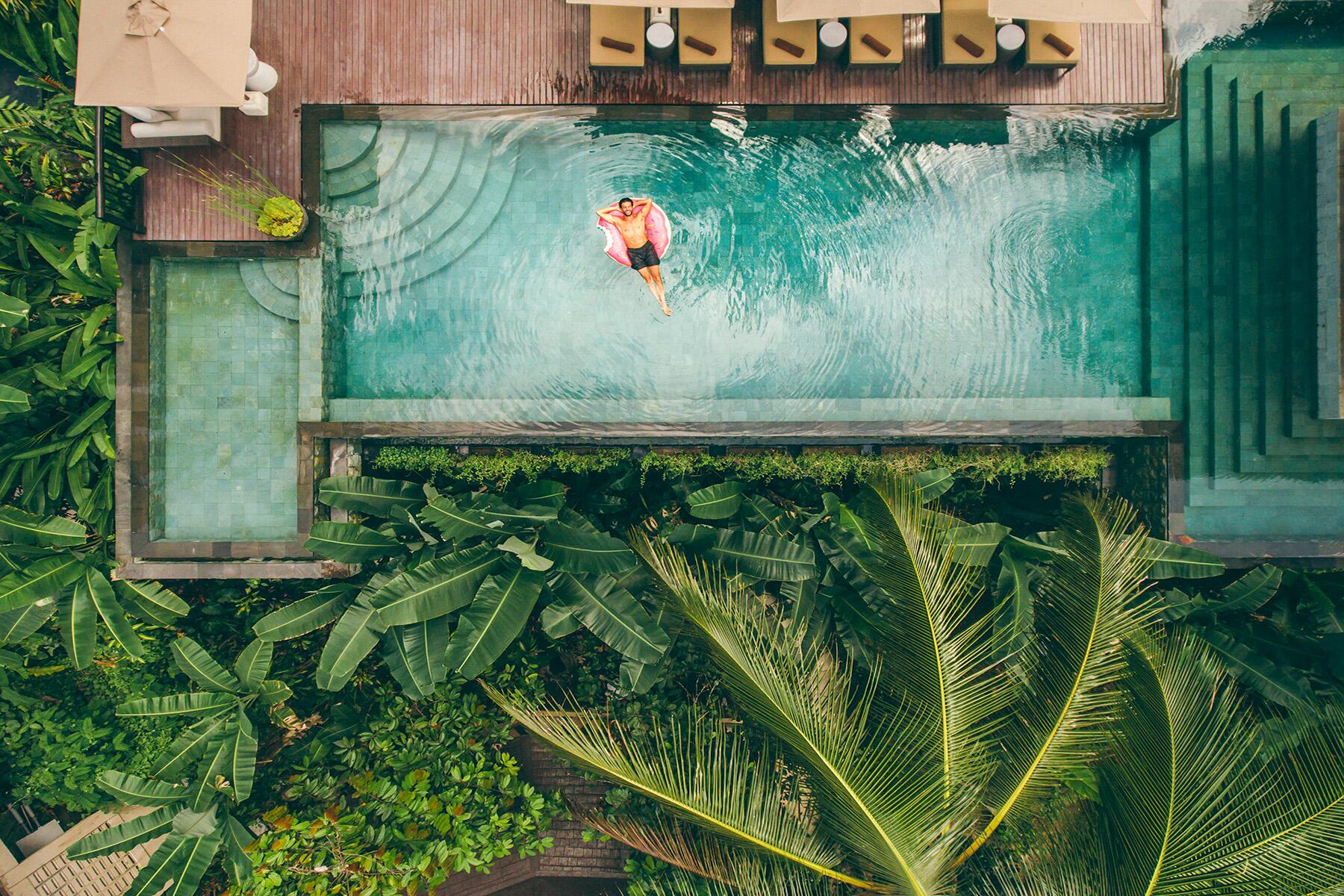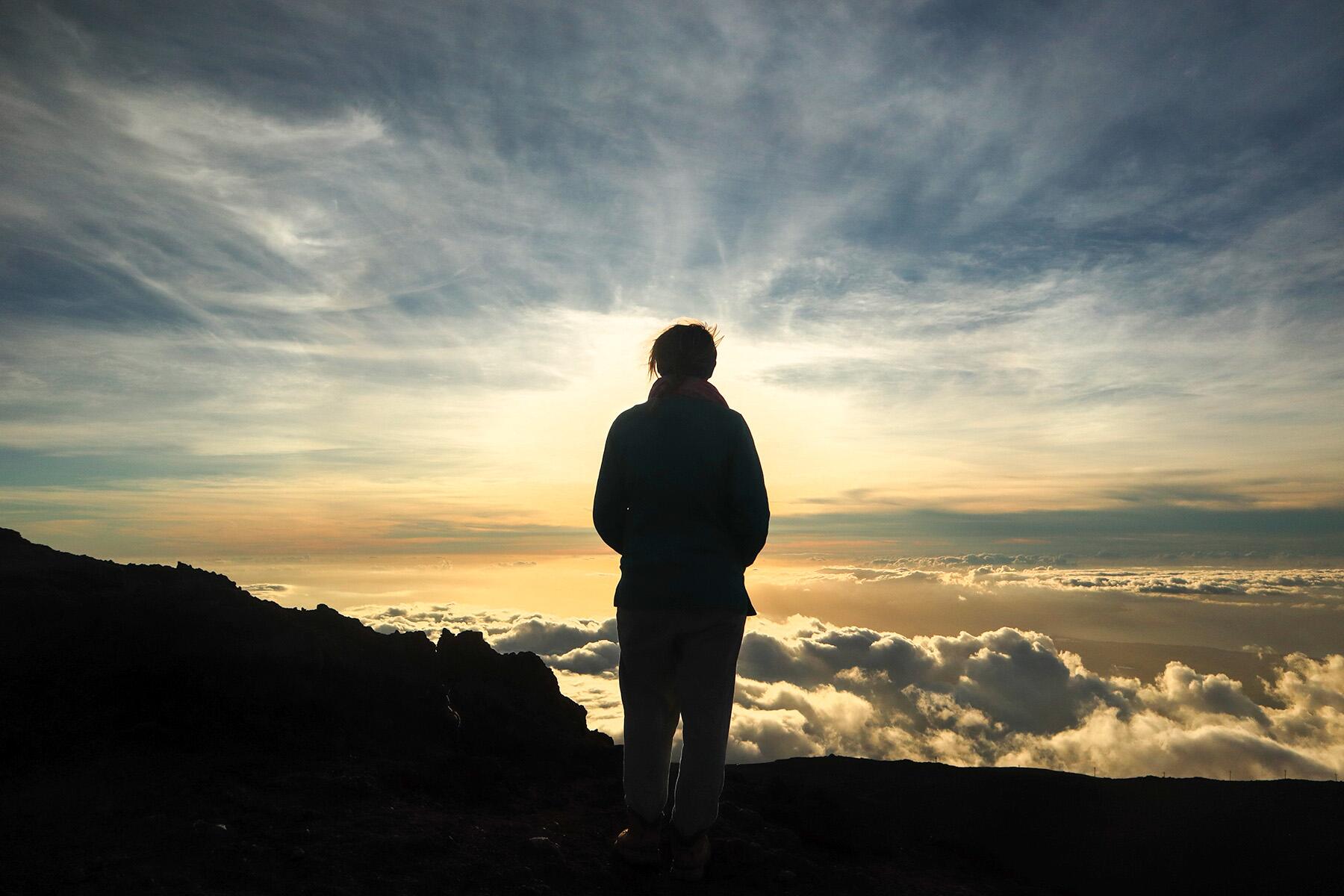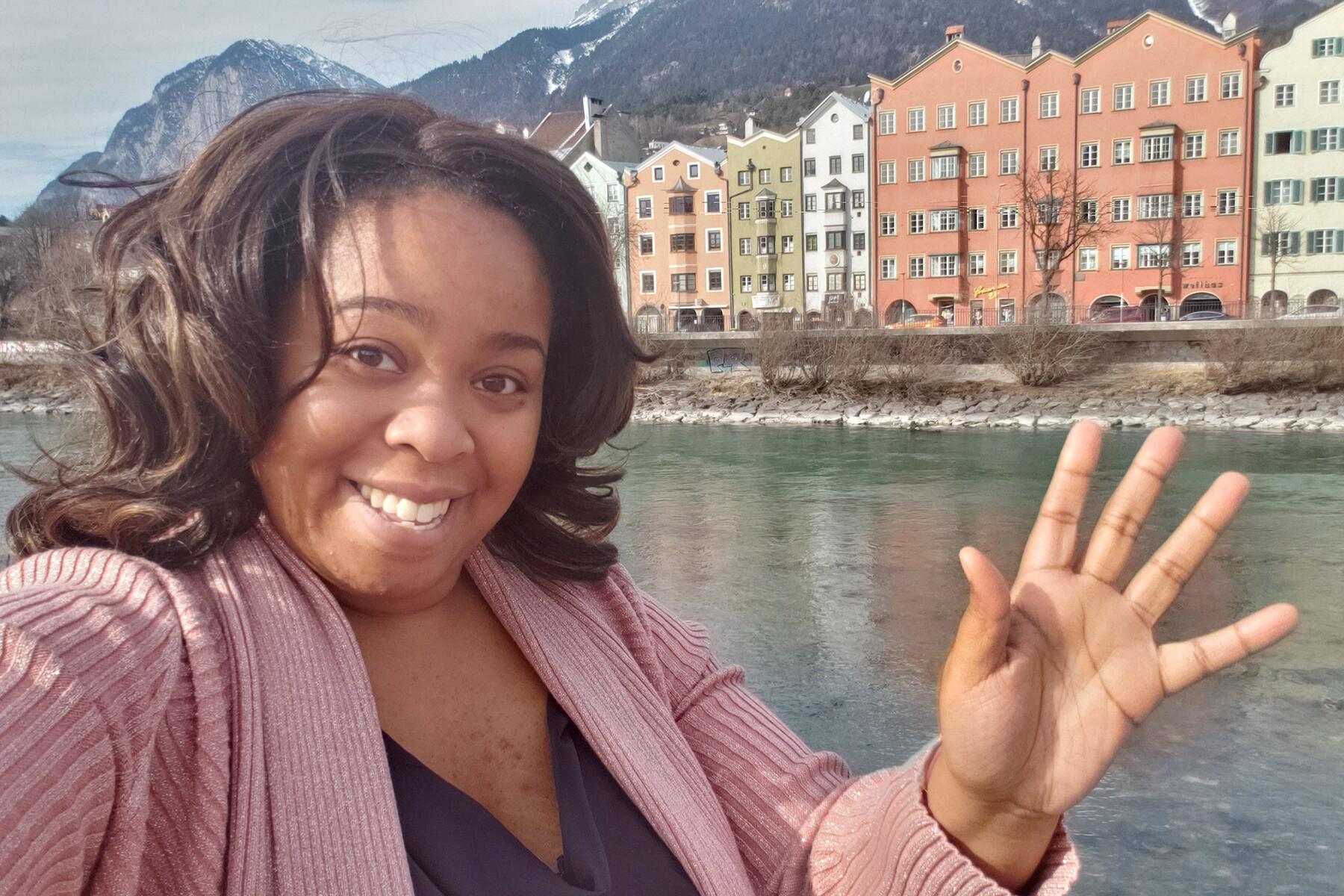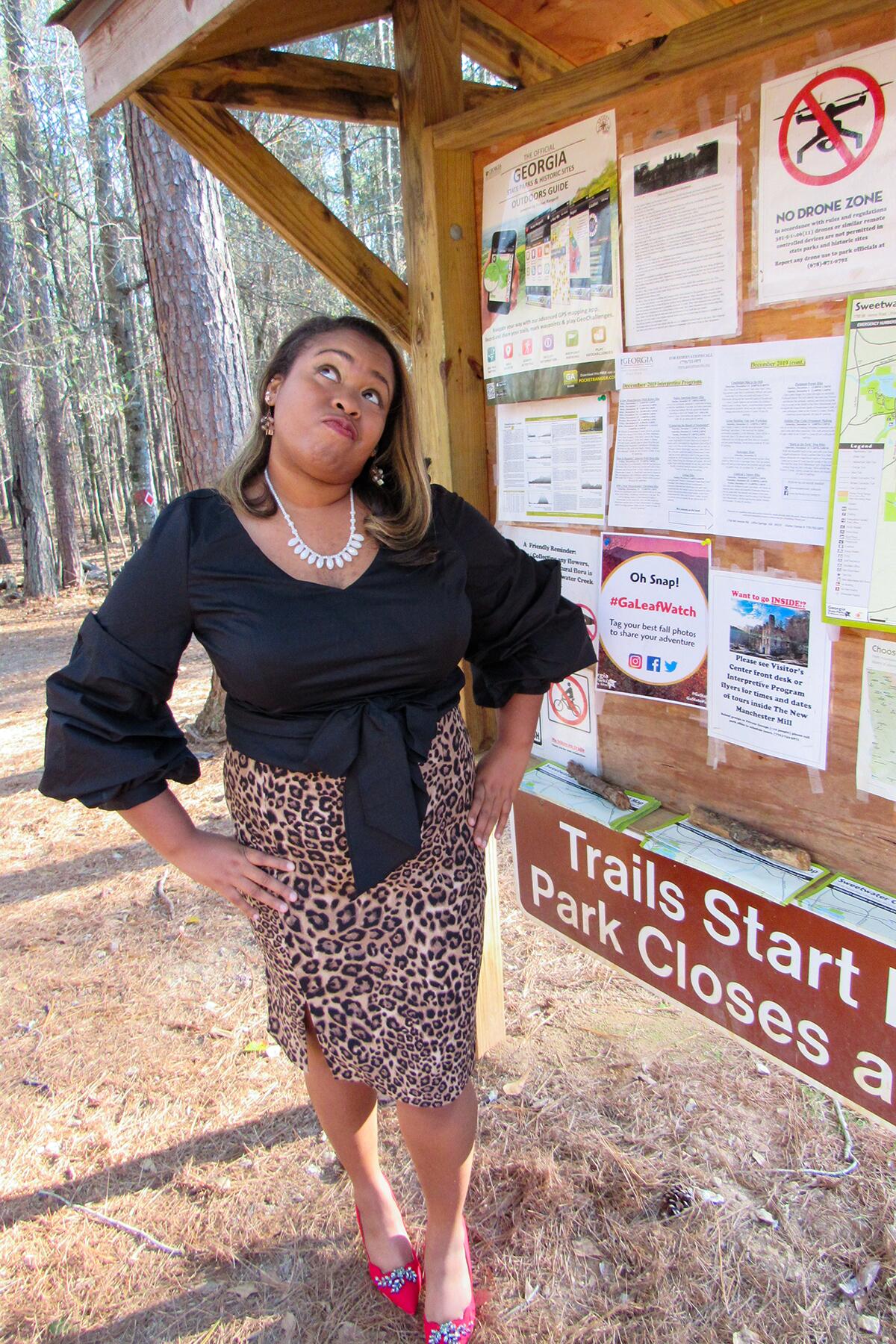Confidence is her superpower, and she’s unapologetically herself.
With 10 countries (and counting) under her belt, Georgia-based Shalese Heard, or the Autistic Travel Goddess, as her social media followers know her, has been documenting her journey as a solo traveler since 2016. The 31-year-old uses her platform (FB | IG | YouTube) to present traveling from an autism-friendly perspective and empower other neurodivergent individuals to explore the world.
“We live in a world that’s always telling us we’re not enough. People are always shunning us for no reason and they seem to always want to tell us that we’re less than others,” says Heard about her experiences as an autistic individual. Diagnosed at the age of 2, Heard remembers her school-age years characterized by feelings of inadequacy and isolation and built her confidence as an autistic individual by learning about travel.
View this post on Instagram
Her interest in exploring the world began when she was 12, when she found herself entranced by a documentary on the Discovery Channel that showcased an expedition to the Arctic Ocean. Fascinated by a foreign culture and the Indigenous communities of the region, Heard went on to devour the contents of encyclopedias gifted to her by her parents and of geography textbooks from school, which introduced her to places she would one day visit.
Up until she was 5, Heard was non-speaking, and her family relied on her to communicate her needs by using her body language and pointing to things. When she was visibly frustrated and rocked back and forth, her parents would intuit that she needed to use the bathroom or was hungry. “In my early years, I took speech therapy to learn phrases and figures of speech because I didn’t know how to speak. And I took a lot of social skills classes as well,” recalls Heard.
Throughout her elementary school years, the majority of her time was spent in special education classes, and she then transitioned into mainstream classes once reaching high school. Heard’s unique needs with learning, social cues, and communication were often misunderstood by her peers and she remembers being bullied. Her feelings of isolation encouraged her to lean heavily into her interest in travel, and in learning about a number of different countries, she sought and found a component that was missing from her experience at school—personal connection.
Fascinated by Russia in her middle school years, she quickly discovered by listening to their music that survivors of the Communist era had to be intelligent and strong—traits she saw in herself for getting through the negativity at school. When Heard’s intense interest in China began, she drew parallels between the disciplined Chinese education system and her own strict routine because she did the same things each day. And in Greenland, Heard saw a geographically-isolated nation and related to her own feelings of social isolation at school. “I felt these countries were my friends and they understood me. They were the only places I could retreat to where I didn’t feel bullied, ostracized, and different,” says Heard.
Heard explains that autistic individuals can often hyperfocus on a specific interest and that they can sometimes have a one-track mind. While for some, the interest could be solving puzzles or learning about dinosaurs, for Heard, it’s researching different countries through books and via the internet. “Once I’m really interested in a particular country, I start wanting to dress like them, try their hairstyles and their food,” explains Heard about the intensity of her special interests.
At 25, she took her first solo trip to Vancouver and recalls her parents reacting with disbelief at the prospect of her venturing out on her own. Heard says they worried about her ability to understand social cues and manage herself if she experiences a meltdown in a destination that doesn’t perceive autism well. Up until the pandemic, Heard traveled at least once a month, with trips ranging from domestic weekend getaways to month-long jaunts to Europe.
View this post on Instagram
But, despite messages that autistic individuals aren’t capable of leading independent lives, Heard finds travel as her way to prove otherwise. “One of the biggest misconceptions is that people with autism are incapable of being in a position to afford travel, based on the statistic that more than 80% of us are underemployed or unemployed,” explains Heard. But she has been creative with ways to fund her passion, previously listing her car on a peer-to-peer car-sharing platform and self-publishing books on traveling with autism. Now, she holds a part-time teaching position at an online business school and spends her time developing online classes to help autistic individuals boost their confidence so they can experience the world to their fullest potential.
“People also have the misconception that we’re childlike and incapable of handling the challenges that come with traveling,” Heard explains. “That’s not fair to us because our standard of what healthy functioning is is different from what the standard for a neurotypical is.”
Heard builds confidence in her own ability to travel solo by understanding her triggers and removing or minimizing them in order to avoid experiencing a meltdown. “Depending on what it is, I retreat into silence or cry in public,” explains Heard.
She identifies crowds and a change in plans or routine as triggers of hers and prepares accordingly. She schedules her day so she visits art galleries and museums when crowds are thin, and brings along different forms of payment, like cash and a debit card in case her credit card gets stolen. In times of distress, like when her Visa was compromised abroad, Heard self-soothes by stimming. “I tend to shake my leg a lot when I’m sitting or pace back and forth. It helps me stay centered and focused whenever there’s a change in routine so I can think about my next steps.”
She’s also aware of her own needs when it comes to travel so she can maximize her vacation experience. “My hotel has to have a pool because water stimulates me in a positive way and helps me get my bearings,” explains Heard. And as a sensory eater, Heard has a sensitivity to foods that can be soft and mushy, like bread and pasta. “I look for restaurant variety to ensure that I have a good chance of having food cooked the way I like,” she says about researching accessible destinations.
View this post on Instagram
“Travel to me is all about gaining confidence. Don’t let anybody talk you out of it. Don’t let anybody tell you you can’t do it. Gain that confidence by knowing what you want and just go for it,” says Heard to other neurodivergent individuals who are thinking about exploring the world on their own. “Don’t be ashamed in the way in which you’re able to travel.”





